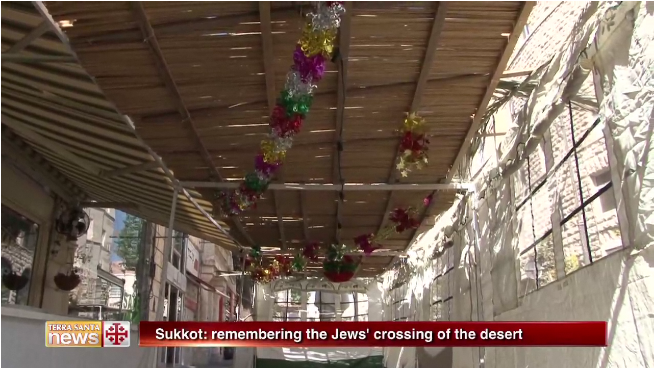An ancient Jewish tradition: Sukkot, or “feast of Booths,” recalls the time when God’s people crossed the desert, while
living in temporary huts.
An ancient Jewish tradition: Sukkot, or “feast of Booths,” recalls the time when God’s people crossed the desert, while living in temporary huts.
Parole chiave: Sukkot, the feast of Booths, huts, Judaism, Jews, the Wailing Wall, the Temple of Jerusalem, Jewish feasts.
During Sukkot, all roads lead to the Jewish Western/Wailing Wall. The Jews come on pilgrimage to the ancient Temple of Jerusalem on the occasion of the feast of Sukkot, as well as on Passover/Easter and on Pentecost.
The word ‘Sukkot’, in Hebrew means ‘booths’. According to the book of Leviticus, which is part of the Torah, God showed Moses how his people should celebrate this holiday: by living in huts made of branches for seven days, to remember their wandering in the wilderness: they had neither a land nor a fixed abode and lived in fragile and temporary tents.
Even now, tents are mounted outdoors. The roofs are made of straw or leaves, through which one must be able to see the sky.
Through this fragile roof, they are also able to look at the clouds that were a great sign of God’s protection of the Israelites: along the way, they were led by seven clouds and they were protected against the dangers and the pitfalls of the desert.


